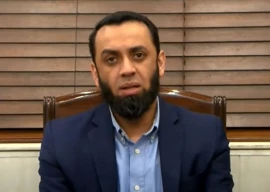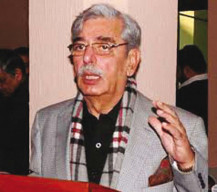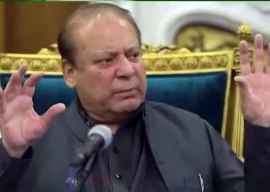
It is the worst of times, and the best of times, on the assembly floor.
A divided National Assembly passed a pro-democracy bill earlier in the week, but came around unanimously on Thursday to pass a landmark bill seeking to establish a commission to work for the emancipation of women.
The National Commission on the Status of Women Bill 2012, according to its authors, was aimed at setting up a body that would ensure empowerment and equalisation of opportunities for women and provide them social, economic, political and legal rights.
Moved by Advisor to Prime Minister on Human Rights Mustafa Nawaz Khokhar, the legislation was widely hailed by members from all political parties whose members generously contributed to the legislation with amendments to make it more comprehensive.
The government, in what appeared to be a goodwill gesture, did not oppose more than three dozen amendments moved by members, mostly from the main opposition Pakistan Muslim League-Nawaz (PML-N).
The major amendments related to the procedure of appointments of chairperson and members of the commission, presented by Zahid Hamid of the PML-N.
Other members, including Dr. Nafisa Shah, Shahnaz Wazir Ali, Bushra Gohar, Dr. Attiya Inayatullah and Azra Fazal Pechuho, also moved their amendments. All of them were incorporated in the legislation unanimously.
According to the bill, the chairperson of the commission will be appointed by a parliamentary committee, with the speaker National Assembly in the chair, and having equal numbers of members from both the treasury and opposition benches, from a set of nominees forwarded by the prime minister.
“The commission will strive for the empowerment of women, equalisation of opportunities for them, improvement in their socioeconomic condition and elimination of all forms of discrimination against them,” read the bill’s objects and reasons.
Economic situation
Prime Minister Yousaf Raza Gilani talked extensively about the economy and said it was showing early signs of improvement despite several shocks in the past few years.
The premier claimed that the government, by controlling its borrowing in the first half of fiscal 2011-12, has managed to bring inflation down to single digits, 9.7%.
Despite slowdown in the industrial sector, the premier said the economy is expected to grow by 4%, largely due to growth in the agricultural sector.
Having collected Rs841 billion in tax revenue in the first six months of the fiscal year, 27% more compared to corresponding period last year, the premier said he was “confident to achieve the tax revenue target of Rs1,952 billion by the end of fiscal year.
He also said the government “adopted a policy of austerity … and spent only 45% from its expenditure budget” for the fiscal year until now.
The premier said the country would minimise its economic reliance on foreign aid in what appeared to be a rebuke to the recent steps by United States administration to link Pakistan’s assistance with its commitment to war on terror.
The main challenge in the coming fiscal, the premier said, would be lowering prices and reforming the agriculture and power sector – areas where the government had been performing poorly in recent years.
With additional input from Wires
Published in The Express Tribune, January 20th, 2012.
COMMENTS (2)
Comments are moderated and generally will be posted if they are on-topic and not abusive.
For more information, please see our Comments FAQ
1719315628-0/BeFunky-collage-(8)1719315628-0-405x300.webp)


1731329418-0/BeFunky-collage-(39)1731329418-0-165x106.webp)


1731749026-0/Copy-of-Untitled-(3)1731749026-0-270x192.webp)










kudos to the ppp led government for making another significant development towards the emancipation of wowen. it wil sit very uneasy with the exponents of patriarchy. but the government has faithfuly lived up to what it promised. emancipation of women is the befitting tribute to great leader benazir bhutto.
another useless bill passed in NA, wont effect a bit on the status of Women